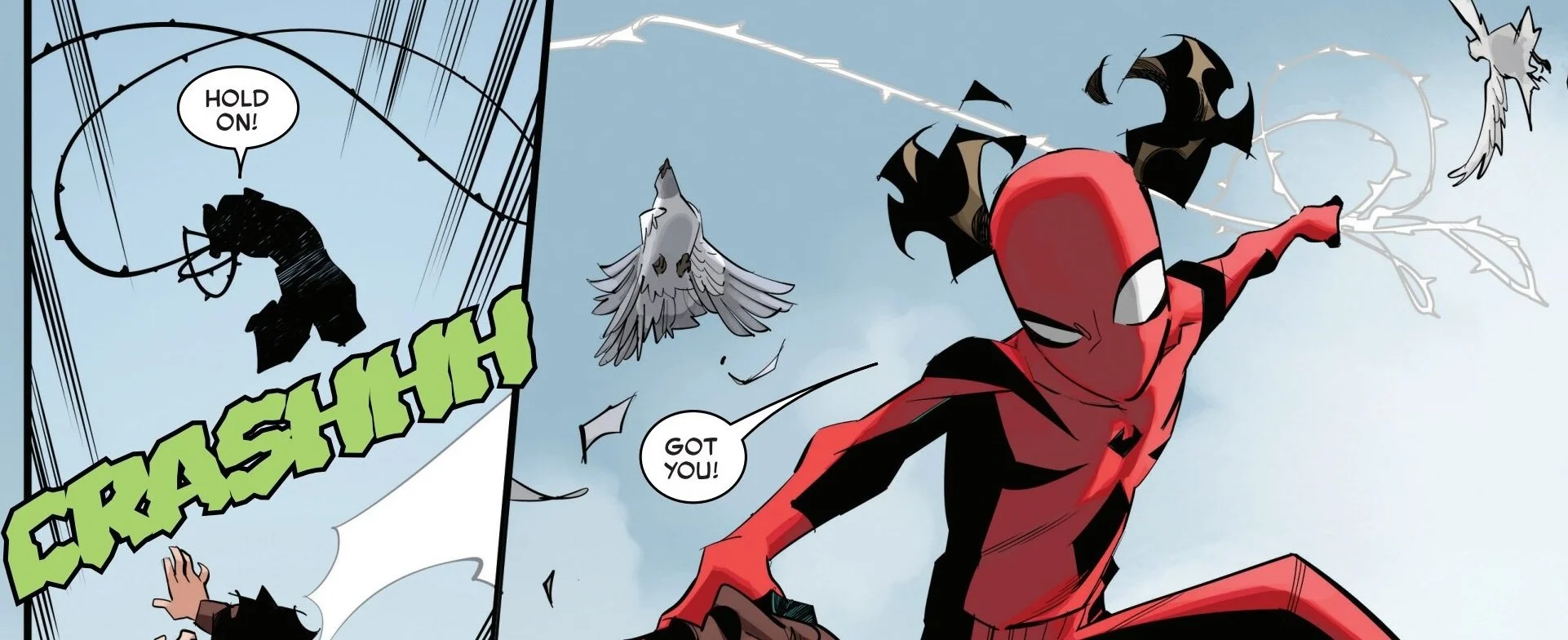Spider-Girl #4 // Review
Maka Akana is in pain. (A lot of pain.) She’s kind of dealing with a lot beyond the pain as well. She’s swung her way home and jst barely made it back into her bedroom before her mom had a chance to notice that she was gone, but she’s concerned. Maka is cold and wide awake in the middle of the night. Maka wishes that she could tell her mother about life behind the mask in Spider-Girl #4. Writer Torunn Grønbekk continues an enjoyable serial with a very, very young crimefighter that is brought to page and panel by artists André Risso and Moises Hidalgo color comes to the page courtesy of Java Tartaglia.
The name of the villain was Paper Doll. (Maka still thinks that “Dr. Fold” would be a far better name.) The villain really messed her up. She’s not going to let that slow here down, though. (Not too much anyway.) She’s still got class at the dojo and she’s still got a lot of other things to have to deal with...not the least of which is a plot to take her down that involves forcing someone to use his powers against her. Maka has some inkling of what’s going on. She’s going to try to do something about it.
The original incarnation of Peter Parker was a sophomore in high school when he got his powers. Back in the 1960s, Ditko and Stanton grounded Parker is a complicated life beyond the mask. Grønbekk does an admirable job of rendering the life of a web-slinger who is just a bit younger than Parker was when he first starting swinging around Manhattan. There’s a surprising amount of strength in the character. Grønbekk delivers it to the page without over-exaggerating it or making it feel unrealistic. The tremendous resilience of Maka is powerfully present in slight shades of phrase in her inner monologue. She doesn’t think she’s anywhere near as strong as she thinks she is. It’s a delicate bit of characterization to bring to the page. Grønbekk nails the subtle nuance perfectly with some of the best work she’s done in the past couple of years.
Once again: Risso brilliantly manages the tricky difficulties of rendering a little girl as a relatively powerful superhero. Granted: she IS an athlete, but she’s still just a girl and there’s a great degree of vulnerability in her inexperience. Risso allows Maka a great degree of expressiveness in body language that amplifies the emotional nature of her life in a way that legends like Ditko and Romita weren’t always able to bring to the page with Parker.
The inevitable crossover hits the series five issues-in. It’s impressive stuff that feels remarkably well-executed. There’s a real opportunity to show gradual character development in Maka as she grows over the course of the years ahead. That’s always something that’s been a bit illusive with longer-term superhero characters who are coming-of-age. It would be really cool to see something like a fifteen year arc with her as she grows into adulthood under the mask. That’s something that’s never really been successfully done in a bit way. Kana’s cool enough that she has the kind of appeal that could take an audience through growing-up under the mask.










